The stunningly untouristy coastline of Croatia
Along the Croatian coastline from Zadar to Trogir lies a remarkable concentration of history, culture, and breathtaking scenery within just under 90 miles (about 144 kilometers). This journey not only encompasses the mainland but also numerous islands scattered along the way.
In addition to Kornati National Park, home to 89 stunning islands, the region boasts two major cities: Zadar and Šibenik, drenched in Roman and medieval history, respectively. The charming town of Trogir, with its UNESCO World Heritage Site designation, is nestled on its own little island. Between these destinations lies a captivating blend of coastal villages, hidden beaches, and a wine-producing region.
Zadar and Surroundings
The heart of Croatia's oldest city, Zadar, founded by the Liburnian tribe and later colonized by the Romans, showcases its rich history within the confines of its walled old town. Here, you'll find remnants of the Roman period, as well as medieval and Renaissance eras. Exploring the area, you'll encounter artifacts spanning centuries.
Piazza Opatice Čike, a square housing the remains of an ancient Roman forum, provides a glimpse into Zadar's captivating past. Nearby, St. Donat's Church and St. Anastasia's Cathedral showcase the evolution of architecture over time, while the remnants of a 10th-century bell tower reveal the presence of a Benedictine monastery. Both St. Mary's Church and the baptistery of St. Anastasia were rebuilt after being destroyed during World War II.
A stroll along the waterfront brings you into the present day, where you'll discover Iva Bašić’s mesmerizing art installations – the Sea Organ and Greeting to the Sun. Simply sit on the marble steps by the seaside and listen to the symphony created by wave-powered pipes. You should also explore Zadar's bustling food market on ulica Hrvoja Vukčića Hrvatinića, which is a short walk away.
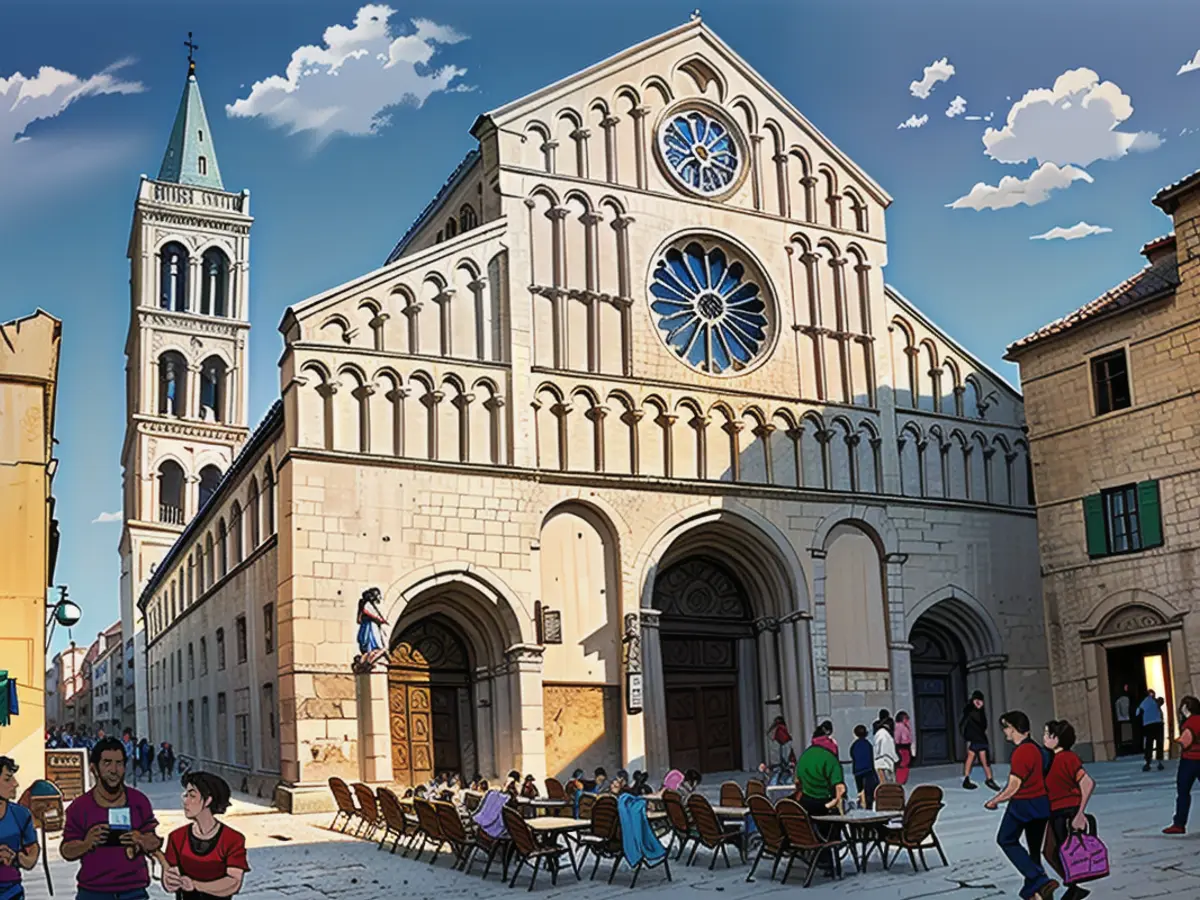
Zadar's shores also offer a variety of beaches. Amble north of the city center to discover family-friendly Borik and Diklo beaches. Below the old town, two popular urban beaches, Kolovare and Kaj, entice with their lively beach bars. To fully immerse yourself in a beach experience, head to Bibinje, located just south of Kolovare. The village boasts almost three miles of beaches, ending at Croatia's largest marina.
Consider making a brief stop 10 miles (16 kilometers) north of Zadar at the picturesque town of Nin. Its unique layout, surrounded by two sandy beaches and connected by two bridges, offers a glimpse into the town's medieval significance. Visit the Nin Saltworks and witness firsthand how sea water evaporates into salt, a process that has remained virtually unchanged for a thousand years. To complete your exploration, try the therapeutic mud available in the reeds behind Queen's Beach.
Zadar’s Island Escape
Nestled in the waters off the Zadar coastline are a collection of islands that exude a relaxed atmosphere. Accessible via ferry, Ugljan and Pašman are just 25 minutes away and practically an extension of Zadar. Both islands feature olive groves, pebbly coves, hiking trails, and biking routes.
For a more secluded adventure, Silba and Olib, located about three hours away, are ideal. The former prohibits cars, and bikes are prohibited during the summer months, resulting in a truly tranquil environment.

Exploring further west, Dugi Otok or "long island" awaits, offering a rolling coastline, traditional fishing villages, and Veli Rat, standing as Croatia's highest lighthouse at 135 feet. Enjoy a windswept drive along its scenic coastline.
Reach the summit for breathtaking views of Dugi Otok's northern coast and nearby islands. You'll notice that many of the island's beaches are pebbly coves, but there's sandy Sakarun on the west coast, while at the southern tip is the mystical Telašćica Nature Park, composed of 25 coves and six islets, nestled in a claw-shaped landscape of oak forests and olive groves, with hiking trails.
Hike to the inland saltwater Lake Mir, or "peace", during low seasons when it truly lives up to its name.
Kornati National Park
Sailors have long appreciated the delights of navigating through the Kornati National Park, an archipelago of 89 barren yet stunningly beautiful islands located south of Dugi Otok.
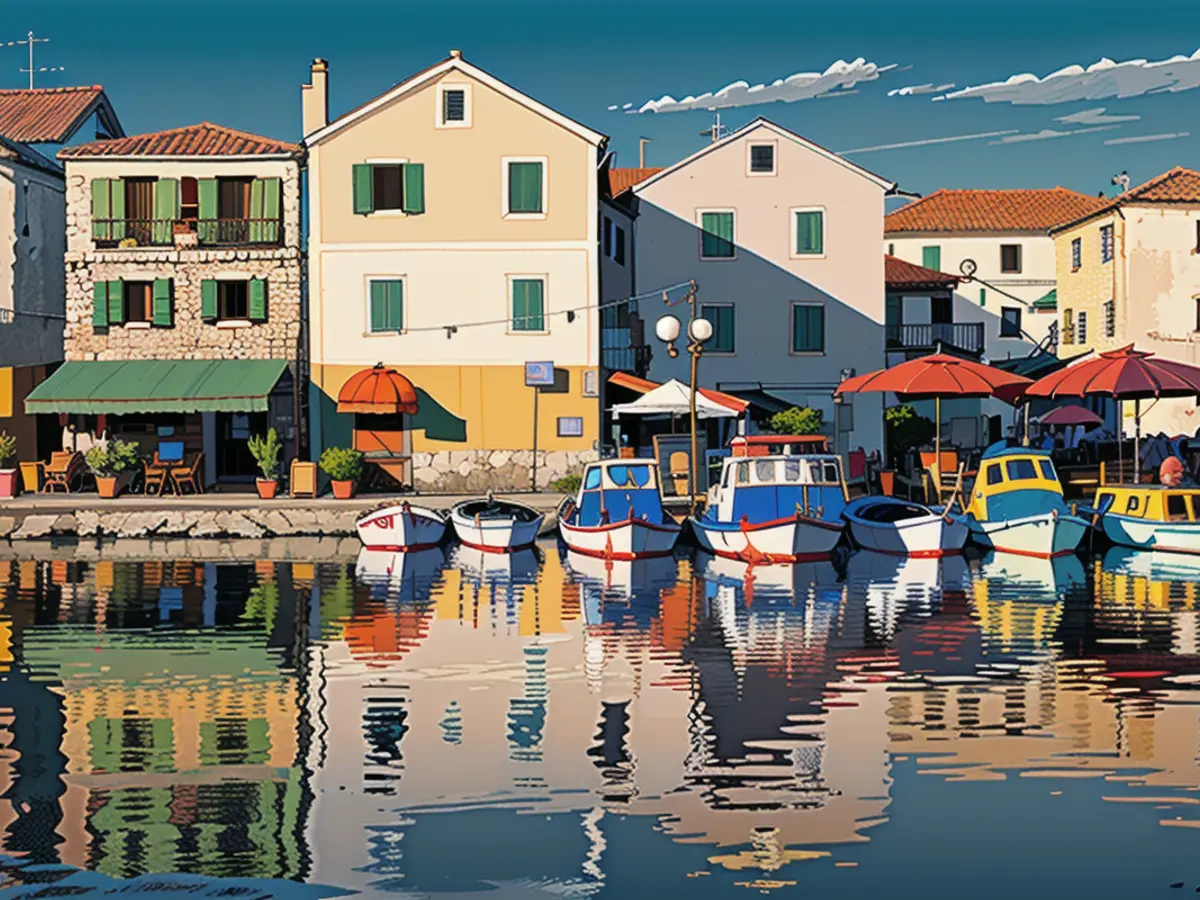
For those seeking solitude, this is the perfect spot; there are no main water or electricity supplies on the islands, just rainwater, gas, and solar energy. In fact, there's no permanent population, just occasional sheep flocks.
When tourists arrive, the islands of Kornati, Priškera, and Levrnaka spring to life, with restaurants and rental cottages opening for the boating enthusiasts, and a well-established marina on Priškera.
There's little more to do than swim, eat, drink, and trek – followed by a repeat of the entire cycle. If you don't possess your own boat, join a boat tour from Murter, an island adjacent to the mainland connected by a bridge.
Šibenik
One of Croatia's most extraordinary cities, often overlooked by tourists, Šibenik is a must-visit destination.
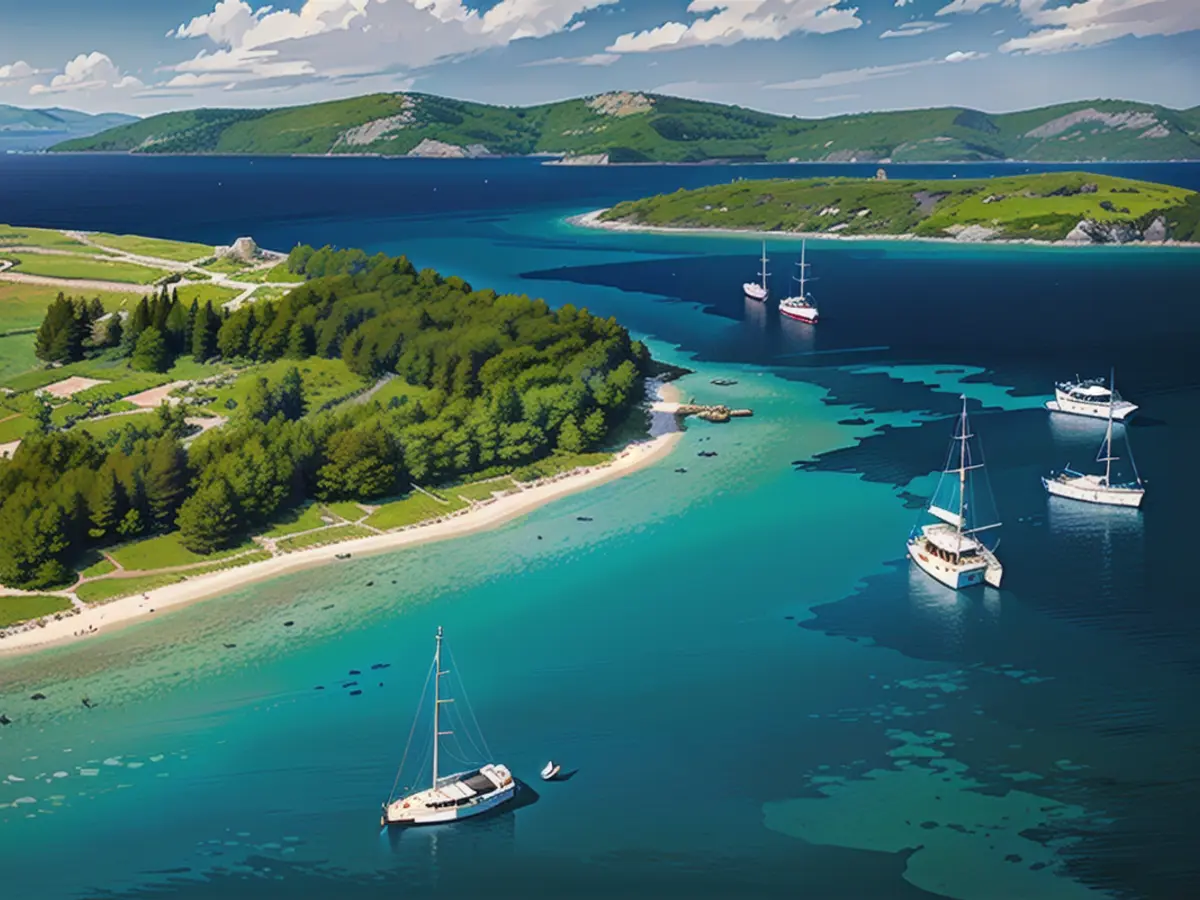
Croatians founded it in the 11th century CE, making it unique among Dalmatian cities, which were founded by Romans or Greeks. This historic town houses the spectacularly ornate UNESCO-listed Cathedral of St. Jakov, a fusion of gothic and renaissance architecture, adorned with a frieze of 71 sculpted portraits around the exterior.
The Venetians ruled here from 1412 to 1797, and remnants of their reign can be found in the city's interconnected marble passageways throughout the old town center. Take time to explore the three fortresses they constructed.
The closest fortress, St. Michael's, can be reached in less than 10 minutes from the waterfront and functions as an open-air concert venue during the summer, offering magnificent views of the Adriatic.
Remember to search for signs leading to the Fragrant Medieval Mediterranean Garden of St. Lawrence's Monastery, just five minutes south of the fortress, where the scents of lavender, rosemary, and wild herbs await you among the benches thoughtfully placed for relaxation.
Šibenik frequently serves as the departure point for visitors to Krka National Park, renowned for its waterfalls as impressive as those in the more popular Plitvice Lakes National Park.
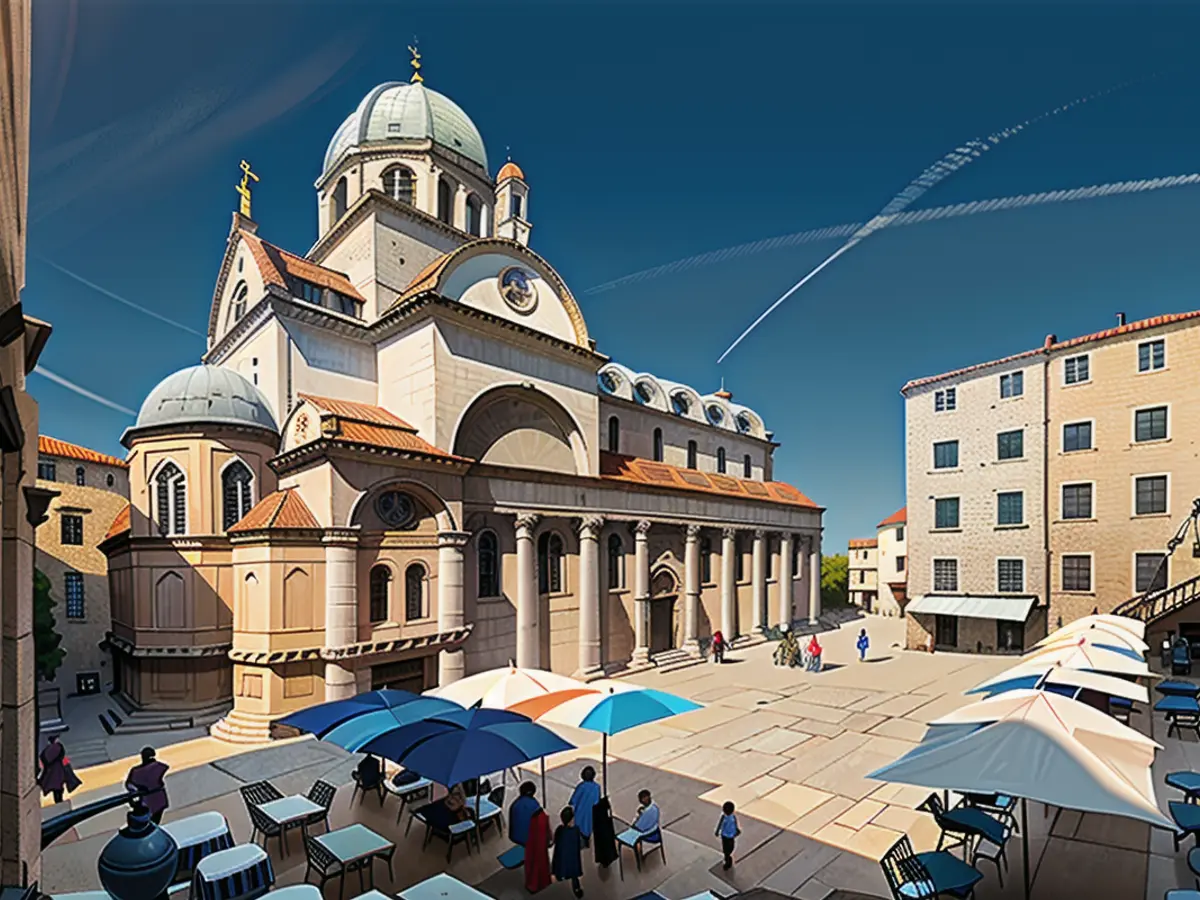
Buses depart from a bus station in Šibenik, journeying twelve miles north to the riverside town of Skradin. From there, embark on a boat ride along the Krka River past seven spectacular waterfalls to Skradinski Buk, featuring seventeen waterfalls cascading into each other.
Upon arrival, disembark and explore the surrounding forested area on foot before continuing deeper into the park. The boat will stop at various spots, including Roški Slap waterfall and the Visovac island monastery.
Visit during late spring, early summer, or fall to avoid the summer months when water levels may drop.
Primosten
Settle in the picturesque town of Primosten, approximately 18 miles (28 kilometers) south of Šibenik, and discover the delightful array of wineries specializing in the indigenous Babić grape, resulting in a soft, fruity red wine against a beautiful backdrop of rolling hills and olive groves. Choose from Matošin or Prgin.
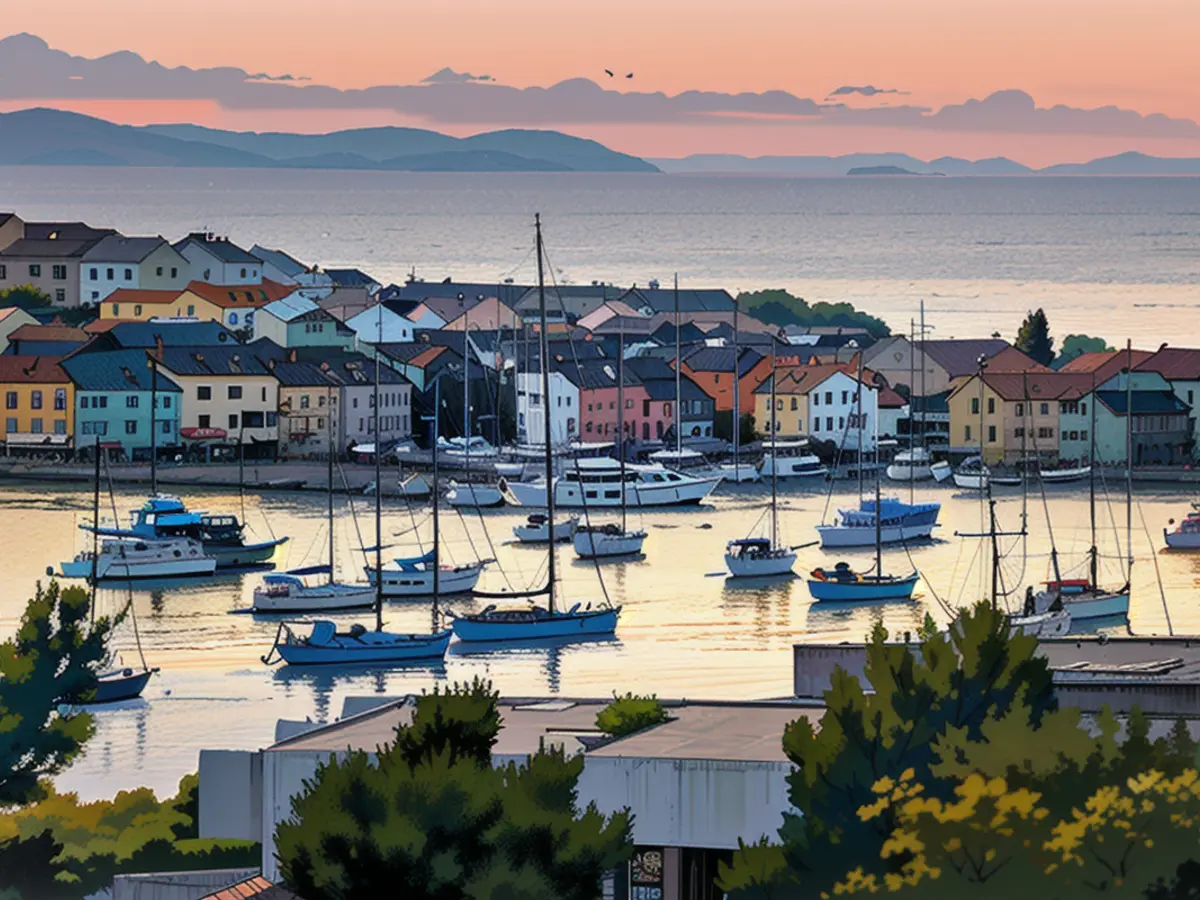
The ancient town structure is on its own island, joined to the modern area by a causeway. Its sloping alleyways ascend to the 15th-century Church of St. George, affording panoramic vistas of the Adriatic Sea. Another notable feature is a promontory to the north of the old town, where sandy beaches with pine trees reside.
Trogir
Trogir's tiny, walled old town is perched on its own small island, squeezed between the mainland's contemporary city section and the expansive island of Čiovo, encircled by beach resorts on its northern and western shores, connected by footbridges.
Step into the central square next to the romanesque St. Lawrence's Cathedral, and you'll instantly understand why the old town is on the UNESCO World Heritage List.
A seamless mix of medieval palaces and cobblestone streets, with squares showcasing cozy restaurants and bars near quaint courtyard gardens make this a charming place to explore.
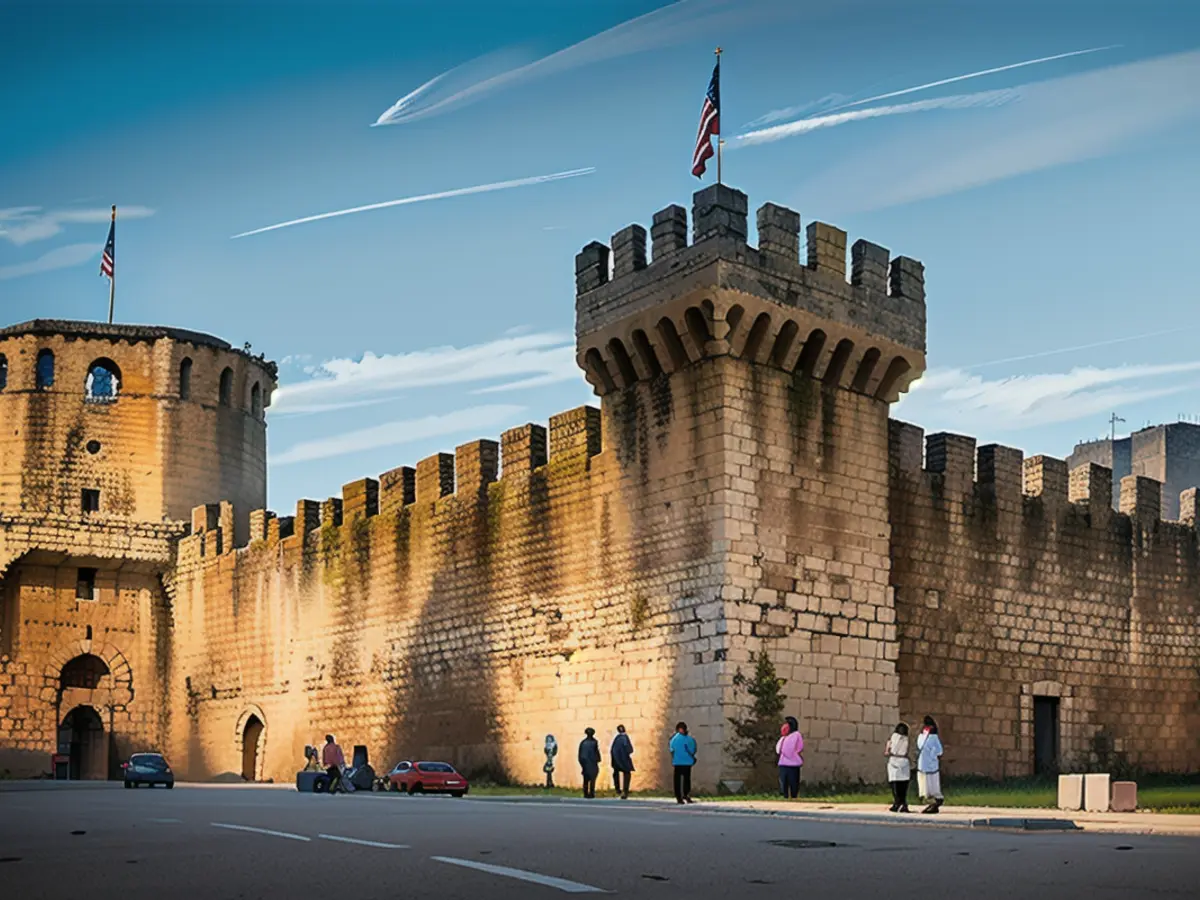
Cross the Riva waterfront to reach the 15th-century Kamerlengo Fortress, an atmospheric location for sumptuous summertime performance arts showcasing classical and pop music.
Mary Novakovich is the writer behind "My Family and Other Foes: Life and Wanderings in Croatia's Hinterland".
Read also:
- Fear of escalation in the Middle East: US Secretary of State Blinken travels to the region again
- Government circles: US Secretary of State Blinken to travel to Middle East again
- Bridging days 2024: How you can double your vacation this year
- Germany has wanderlust: how tour operators and airlines are looking ahead to the next travel year
Discovering more of Croatia's charm, you might consider a trip to the nearby city of Split, famous for its Roman Diocletian's Palace. This ancient fortress serves as the city's heart, housing cafes, shops, and the beautiful Cathedral of St. Domnius.
Embarking on an excursion, you can explore the beautiful Dalmatian coastline by traveling along the jaw-dropping Adriatic Sea Highway. This scenic drive affords breathtaking views, secret beaches, and a chance to truly embrace the country's natural beauty while engaging in some unforgettable travel experiences.
Source: edition.cnn.com








